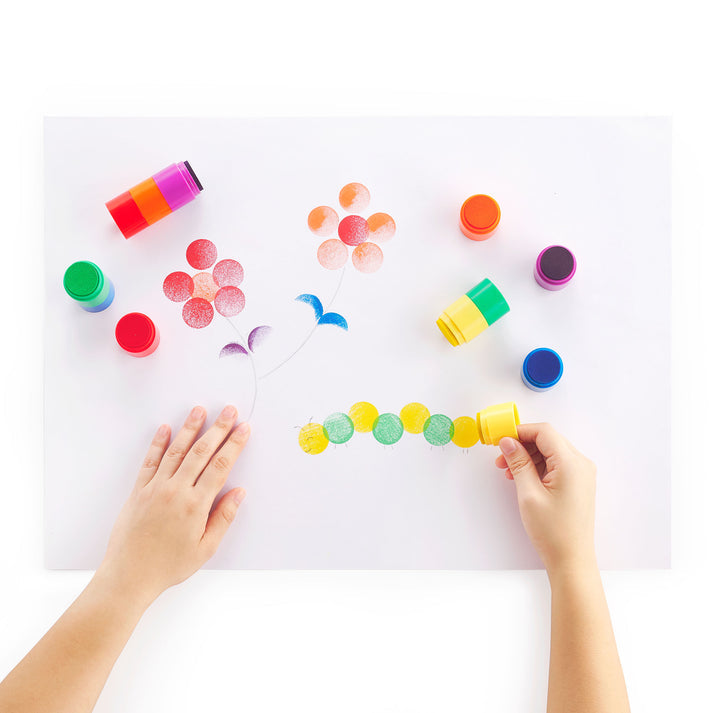
As parents and caregivers, we all want our children to thrive emotionally, socially, and intellectually. For children who are neurodivergent such as those with autism spectrum disorder (ASD), ADHD, or sensory processing challenges understanding and managing emotions can be more complex. That’s why play isn’t just important, it’s essential.
At Edx Education, we believe play based learning is one of the most effective ways to help children explore their emotions, manage sensory input, and develop social understanding in a joyful and safe environment. Through our educational toys, downloadable resources, and the Play, Learn & Create podcast, we’re here to support families every step of the way.
Why Play Matters for Emotional and Sensory Learning
Play offers children the chance to experiment, explore and express themselves freely. For neurodivergent children, it also provides structure and repetition that helps them make sense of the world. Play can be calming, empowering, and a powerful outlet for sensory integration.
Neurodivergent children often experience heightened sensory sensitivities, emotional dysregulation, and difficulty with transitions. Through thoughtful, sensory-friendly play, we can provide tools and strategies to help them self-regulate, communicate how they feel, and feel safe expressing their emotions.
Introducing Edx Education Emotion Stamps
Our Emotion Stamps are a fantastic tool for helping children recognise, label, and talk about their feelings. Each stamp represents a different emotion from joy and surprise to frustration and sadness.
Using these in play:
-
Emotion Matching Games: Encourage children to match the stamp to how they’re feeling. You might say, “I’m feeling tired today. Which stamp shows tired?” This opens up conversation and promotes emotional literacy.
-
Story Time with Feelings: Children can use the stamps to create characters and stories that explore different emotional situations. This helps them process their own experiences in a creative, non-threatening way.
-
Daily Check-ins: At home or in the classroom, start the day with a “how are we feeling?” stamp session. It builds routine and emotional awareness.
Linking Cubes for Building More Than Structures
At first glance, Linking Cubes look like simple building blocks. But they’re also a brilliant tool for helping children understand emotions and manage sensory needs:
-
Colour-Coded Emotions: Assign colours to emotions red for angry, blue for sad, yellow for happy and ask children to build a “feelings tower” to show how they’re doing.
-
Sensory Soothing Builds: The tactile nature of snapping cubes together can be very calming. Encourage repetitive, focused play to support children who benefit from fine motor stimulation.
-
Turn-Taking and Social Play: Build a structure together each person adding one cube in turn. It’s great for practicing patience, collaboration, and communication.
Sensory Play for Self-Regulation
Play that engages the senses touch, sound, movement is especially important for children with sensory sensitivities. Try integrating toys like:
-
Sand and Water Play Trays: Ideal for calming the nervous system and exploring textures in a safe and enjoyable way.
-
Rainbow Pebbles®: Smooth, colourful, and satisfying to hold, they’re brilliant for sorting, sequencing, and creating calming mandala patterns.
-
Dancing Ribbons: Encourage movement and self-expression. They’re fantastic for children who love to spin, twirl, or need to release energy.
Strategies to Support Neurodivergent Learners through Play
-
Create a Calm Play Space: Keep environments clutter-free and predictable with soft lighting and low noise.
-
Use Visual Supports: Charts, schedules, and visual prompts can help children navigate transitions between activities.
-
Follow Their Lead: Allow the child to guide the play. This builds trust and boosts confidence.
-
Offer Choices: Give children autonomy by letting them choose which toys or activities to engage with.
-
Repeat and Reinforce: Consistency helps build understanding. Repeating activities allows emotional and sensory processing at the child’s pace.
Tune into the Podcast
On the Play, Learn & Create with Edx Education podcast, we dive deeper into strategies for emotional and sensory development. We interview experts, educators, and parents to share practical tips and inspiring stories about the power of play in all children’s lives.
Final Thoughts
Every child deserves to feel understood, supported, and celebrated for who they are. For neurodivergent children, play isn’t just fun it’s therapeutic. By using educational toys like Emotion Stamps, Linking Cubes, and sensory-friendly resources, we can help children learn to express their emotions, manage sensory input, and thrive.
Let’s build a world where children play, learn, and create with joy.
To learn more about Edx Education’s play-based toys and downloadable resources, or to listen to our podcast, visit www.shopedx.co.uk
By Heather Welch, Author of Happy Children Play and Host of Play, Learn & Create with Edx Education*



